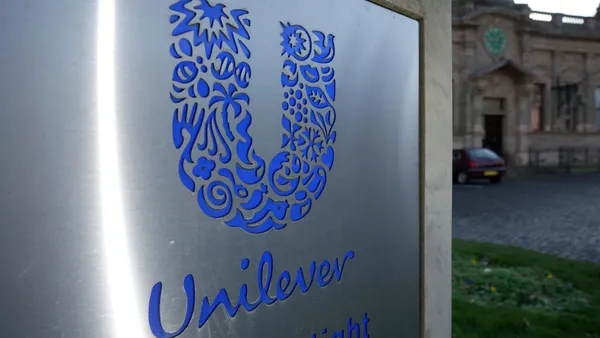Dive Brief:
- Facebook is officially rolling out Facebook Stories, its Snapchat lookalike feature for its main platform, to all users, according to a company blog post. As part of the launch, the company is also introducing a new in-app camera that provides users with a variety of AR effects that can be applied to photos and videos.
- Virtual effects include masks, frames and interactive filters, along with reactive effects that let users add dynamic objects like falling snow and apply artistic overlays to video in real-time.
- A number of entertainment brands are already taking advantage of the new offering, with filters running for upcoming movies including: "Alien: Covenant," "Despicable Me 3," "Guardians of the Galaxy Vol. 2" and "Wonder Woman."
Dive Insight:
Like Instagram Stories before it, Facebook Stories is a pretty blatant Snapchat clone, from the user interface and core functionality all the way down to its name. Facebook has introduced a number of similar copycat features over the past year, on properties spanning from Messenger to Live, but putting the new Stories offering front-and-center on its main mobile app's refurbished camera might be one of the most direct plays against Snapchat to date.
Another key takeaway from the latest Stories announcement is that a number of big entertainment marketers are already running promotions through the feature. Instagram Stories only recently started offering full-screen ads for all businesses globally, but Facebook Stories has a more direct brand component at launch.
Facebook has a massive global audience, and more and more of those users are becoming mobile-first. In December, Facebook's mobile daily active user base hit an unprecedented 1.15 billion, meaning Stories could have a healthy stable of early adopters that could quickly outpace Snapchat's reportedly sluggish audience growth.
While Facebook's frequent iterations of Snapchat-aping services have drawn criticism, some of the offerings have also proven remarkably successful. Instagram Stories, launched last August, quickly grew to match Snapchat in audience size and might've even siphoned off some of the upstart app's influencer talent and users ahead of parent company Snap's IPO at the beginning of the month.












